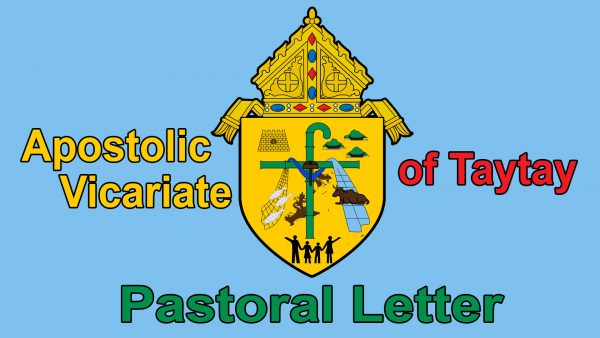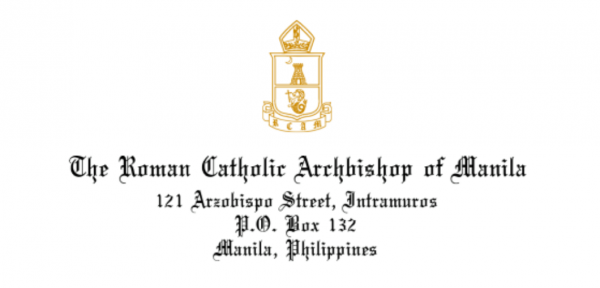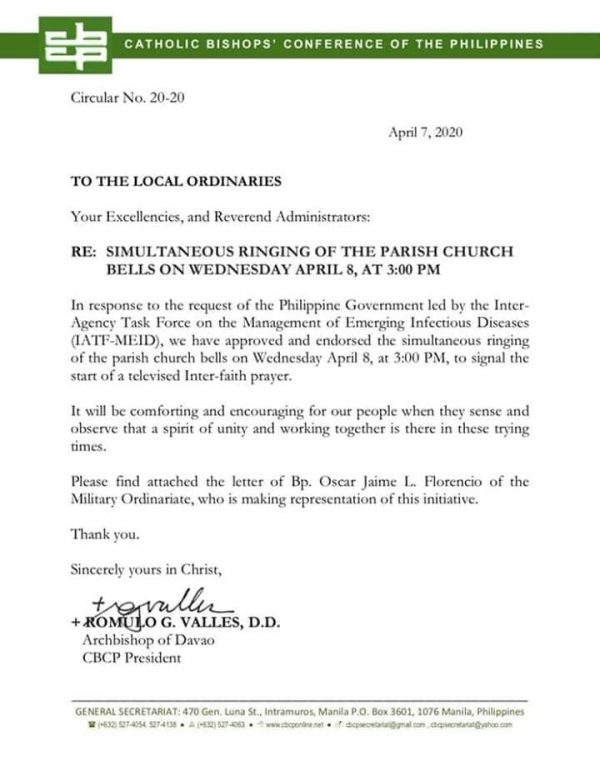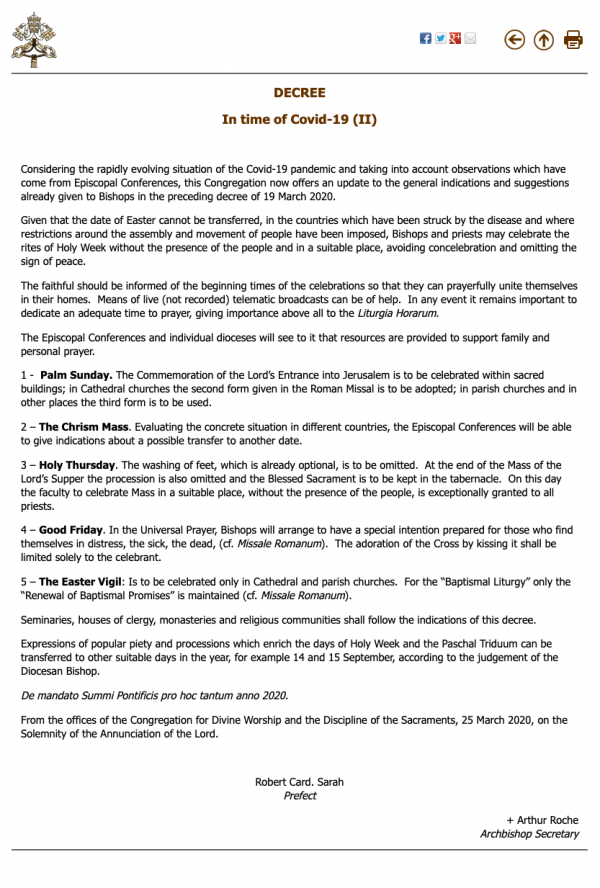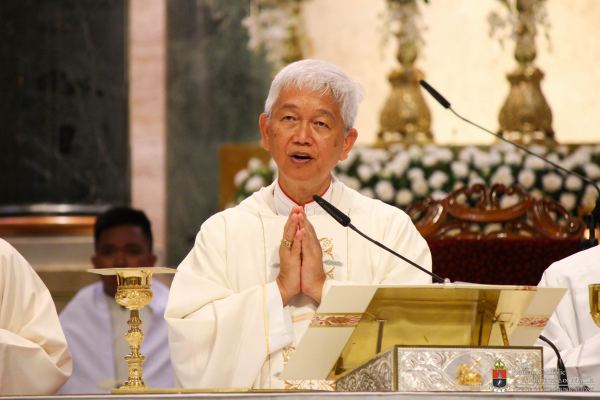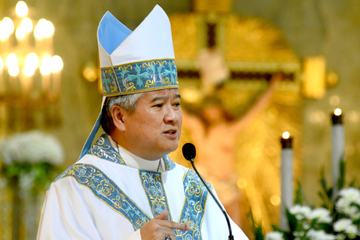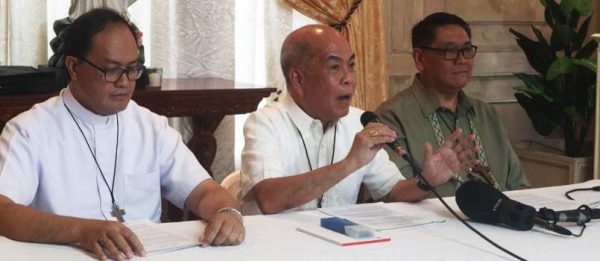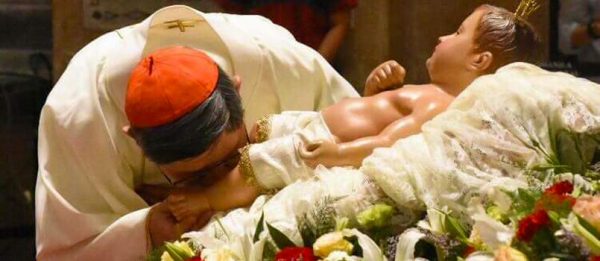2,123 total views
ARCHDIOCESE OF JARO
Protocol No. 2875/2016
TO: THE REVEREND CLERGY AND THE LAY FAITHFUL OF JARO
RE: PASTORAL STATEMENT ON MERCY AND JUSTICE
UNLEASHING THE POWER OF LOVE AND MERCY
A Pastoral Statement of the Archdiocese of Jaro on Mercy and Justice
“I hear my people’s cry…” (Ex 3, 7-8)
The anguish of the people and her hopes, are also that of, the church. I by this, the Church considers the tears and also the aspirations of the people as her very own. Among the many problems plaguing our nation, the damage brought about by drugs has pervasively reached epidemic proportions that certainly demands our most urgent attention and proactive response. We feel the outcry of the thousands who as a result were victimized because of this menace. In connection with this, we share the vision of our government leadership that desires to put an end to this problem. Yet as we increasingly hear the disturbing cries of the innocent victims of drugs, we also hear the anguished cries of those who were victims of extra-judicial killings and the family they left behind. The deplorable images of the victims of drug related crimes before are now superseded by the horrific images that flood our TV screen of the increasing body count.
2 It is heart-wrenching to recall the scenes – of a little girl crying in shock over the dead body of her father shot before her very eyes, the pregnant wife inconsolable at her loss as she cradled the lifeless body of her husband and the mother sick with stroke who saw her son gunned in front of her. These are voices too that Church cannot and should not ignore. These too are the anguish and cries of the people that God hears.
3 The Church unequivocally declares the evils of illegal drugs and its consequent effects of crimes, narcopolitics, corruption of the youth, and destruction of families. Emphatically and resoundingly we announce that we need more than ever to galvanize our energies and efforts to put a stop to this. We affirm the passion and the vision of our govemment in pursuing this. However, we also unequivocally declare that as a Church, we cannot accept in conscience extra-judicial killings. The inviolability and sacredness of human life in all its aspects must be upheld.
4 Even our Constitution considers this as sacrosanct when it declares: “no person shall be deprived of his life, liberty and property without due process.
5 In the Light of the Paschal Mystery Jesus Christ, who was crucified, died and was raised, is the key that enlightens man’s reality and unravels his destiny.
6 In dealing with our dilemmas and problems we turn our gaze to our Crucified Savior. Jesus was crucified between two criminals.
7 In the choice of death, our God who embraced our messy humanity by being born in squalid conditions and laid in the manger, now embraced death at its cruelest form. It is as if God is telling us, in the place where you think only death is to be found, I am there to offer life; in a situation where pain of execution is the only real option, I offer you a choice of conversion that leads to forgiveness and redemption! By dying in between two criminals,Jesus chose, from his birth to his death, the path of utmost solidarity with humanity. And this solidarity becomes a doorway where he channels mercy and redemption. Till his last breath, he breathed mercy for the sinner; till his last words, he offered forgiveness; and till his last actions, he offered solidarity and hope. Here, the Church recognizes that even for the most villainest heart Jesus never gave up on man. Pope Francis called this the “logic of mercy.”
8 Even though it is hard to fathom in the eyes of the world, it is from this horizon of mercy that we must view reality and where we draw guidance for our actions. This is where as Christians we anchor our vision in life and our mission in the world. Simply put, if truly we are sons and daughters of the Father, then we must become miseficwdes sicul Pater, merciful like God our Father!” This is why the Church exhorts everyone not to be contented with mere retributive justice but more and more embrace restorative justice. This is why, she believes in mercy as true strength that leads to healing and not as weakness of futility. In fact, forgiveness is the attribute of the strong. This is why the church believes that His death on the cross, even for the hardened criminal, may lead to the restoration and redemption. This is the spirit at the heart of the Mother Church: we see evil in men and we are affected by that, but at the same time, we also see, whatjesus sees, a soul still capable of conversion… a soul worth dying for towards redemption!
Pursuing Converging Pathways of Mercy and Justice
As Local Church, we failed to foresee the magnitude of the drug menace and we now humbly accept our share of shortcomings with regard to forming our consciousness and behaviors in confronting social maladies that demands more evangelical discernment and faith driven response. Today, majority seem to accept what’s happening and are exhausted to question the morality of the situation. When we ponder the unfolding situation from this faith perspective, yes humanity is anguished by victimization of drugs; but similarly, each time a person is killed without due process, a part of us, dies also. Our humanity is diminished and our dignity is cheapened. As we humbly admit our failings, let us join our voices in echoing change as envisioned by our leaders, but change whose goal is accompanied by the right spirit of God and the morally right means.
i) Breaking free from our veiled ignorance and reshaping our consciousness first according to the mind of God is foundational. There is a wide perception that mercy and justice are in contradiction. It is unfortunate that some thought that, that opting for mercy might compromise or devalue justice. justice without mercy is CRUELTY. Mercy without justice is pure sentimentalism. Indeed, mercy builds on JUSTCE. Let it be clear, God demands accountability for our wrong actions. Yet ‘God’s justice is His mercy given to everyone as a grace that flows from the death and resurrection of Jesus Christ. Thus the Cross of Christ is God’s judgement on all of us and on the whole world, because through it He offers us the certitude of love and new life.“ From here, some specific manifestations of this ongoing formation of our collective religious conscience that motivates us towards engaging social issues can include: 1) concerted sustained information/education drive on drug abuse and what can be done to stop it; 2) strengthen family relationships and empower parents to start change within every family; 3) vigilance and antidrug abuse programs in our academic institutions, parishes and barangays.
ii) This complex problem cannot be solved by one group alone and needs concerted and collaborative efforts. 1) We appeal to Christian leaders, businessmen, professionals, physicians, to invest time, resources and energies to help curb this problem. Offering help for the rehabilitation either by donation or by volunteering services such as counseling can go a long way in the path of healing. We must also commit to greater church and state collaboration to eradicate the problem of illegal drugs. Through the facilitation of jASAC (jam Social Action Center), we can join hands in partnership with groups like the DlLG for ‘MAMASID’ (Mamayang Ayaw sa Anomalya, Mamamayang Ayaw Illegal na Droga and ‘UBAS’ (Ugnayan ng Barangay at Simbahan) – to fight against criminality, corruption and illegal drugs.
iii) We encourage the continuing appeal for our justice system to expedite the process of hearing and conviction and cleanse it from corruption so that justice will be served effectively and swiftly for those who commit crime due to drugs. To all implementing arms of justice whose courage we laud in battling crime, we appeal that you do your duties guided by right principles of morality and legitimacy focused on the correction of offenders.“
iv) In this Jubilee Year of Mercy, as we renew our commitment in the on-going formation aimed at prevention of drug abuse, it should be accompanied by concrete efforts by all parishes in the Archdiocese to pitch in financial resources in order to help set up certain rehabilitation program/area like setting up a ‘Balay kalu-oy kag Pagla-um’ which can offer a chance for healing and hope. The sincerity of our desire to help as a church concerning this problem will be validated by the intentionality of our charity that can take the shape of a place for conversion, correction and restoration.
v) Finally, we launch a ‘spiritual revolution‘ to transform our societal situation. Pope Francis, points to the teaching of his predecessor Pope Benedict who said that in order to change history, Christians must become true revolutionaries in grace. And for him this can only happen by surrendering to the power of the crucified, dead and risen jesus Christ for it is “Jesus who can only effect real transformation of history by changing our hearts!’’ 2 By prayers both personal and collective done in our parishes and religious communities and associations, let us launch this spiritual revolution that will heal our nation.
Towards Becoming Bold Witnesses of Mercy
Yes, we are sick of disgust with the drug abuse menace. Yes, we affirm that something radical must be done to face this. Yes, we declare support for the vison to stop and fight it. But we appeal that it be done accompanied by the right spirit of God and because of that, the right means should flow from this. Not doing so, is bound to create more damages than solve the problem. When overwhelmed by evil, it is easy to subscribe to the mentality that the solution is self-defense by any means whatsoever. This is understandable. But is this the only option left to humanity? Ask one mother and she would confirm her deep anguish in dealing with her son who became a drug addict for more than ten years. Repeated rehab and advises did not work. Exasperated, her other children told her to throw him out on the streets and give up, for he is a hopeless case. She thought about this seriously. However, at the end, she realized that her heart could not bear to do this. Against all odds, she decided to forgive. When confronted why she acted this way- she answered: “I chose to forgive him, despite all he did because as a mother, I could never give up on my child.’ That child is now drug free and is living successfully with his family. God`s mercy is like that of this mother. He relates with us not only the on the merits of our actions but above all acts from who He is – He is God who never gives up on His children.”
In today’s world burdened heavily with pain and anguish, the voices that rise louder than others clamor for justice without mercy as a response. In the cacophony of this noise, we find our way humbly and stand beneath the cross seeking answers. Gazing at the Crucified Savior“, we understand who we are – we are that sinner and criminal that Jesus has loved and offered his life. To believe in this love means to believe in mercy! Here we see the most jolting revolution that mercy, in fact reveals most God’s power . This understanding unleashes most revolutionary consequences in our existence and praxis. Love proven in mercy becomes the new foundation of a culture for our lives, the church and for society. Beacause of this every believer of God’s love , inevitably becomes a revolutionary of mercy!
Angel N. Lagdameo D.D.
Archbishop of Jaro












